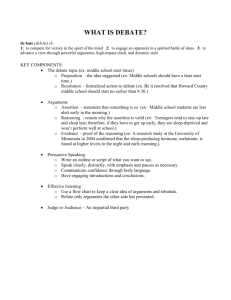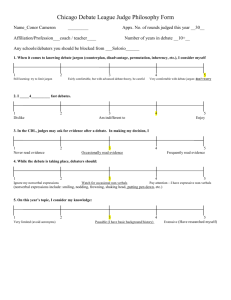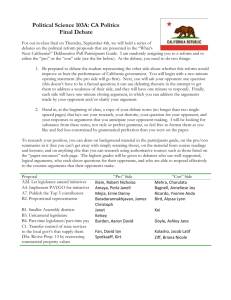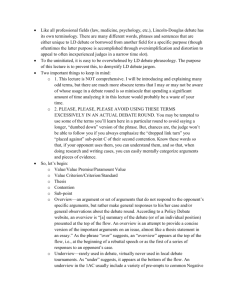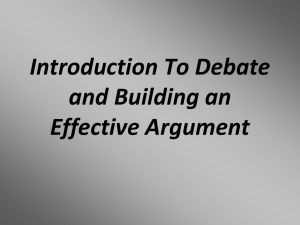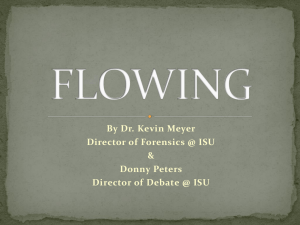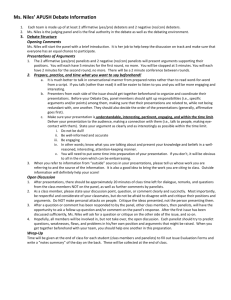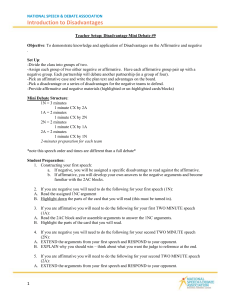Statistical Methedology Theory
advertisement
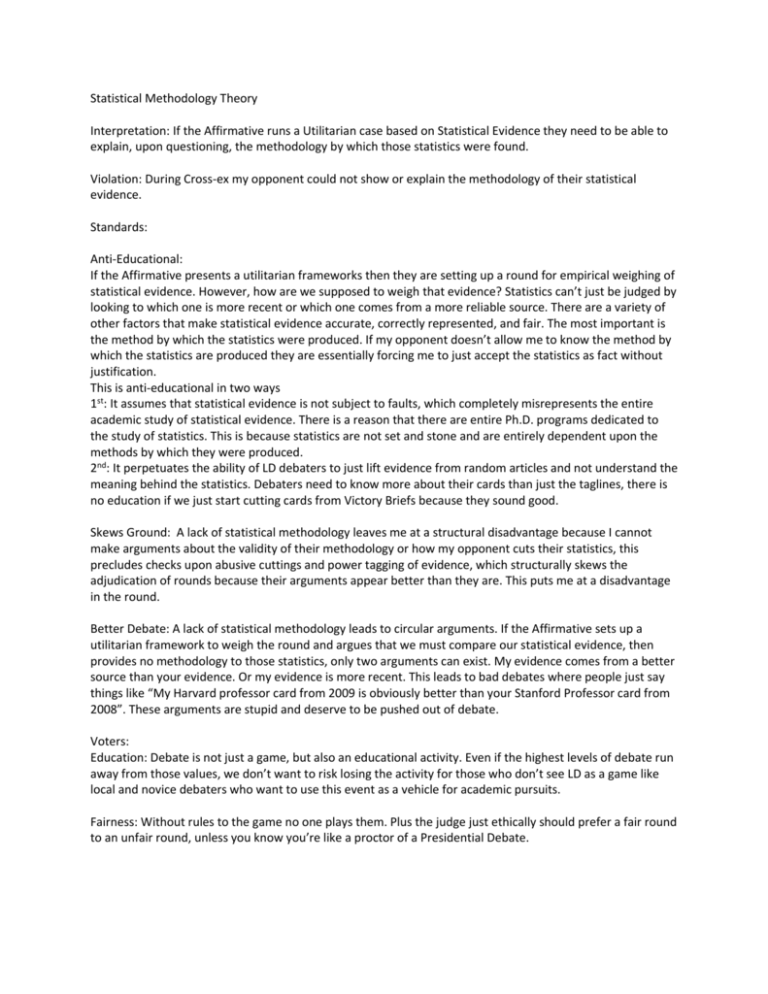
Statistical Methodology Theory Interpretation: If the Affirmative runs a Utilitarian case based on Statistical Evidence they need to be able to explain, upon questioning, the methodology by which those statistics were found. Violation: During Cross-ex my opponent could not show or explain the methodology of their statistical evidence. Standards: Anti-Educational: If the Affirmative presents a utilitarian frameworks then they are setting up a round for empirical weighing of statistical evidence. However, how are we supposed to weigh that evidence? Statistics can’t just be judged by looking to which one is more recent or which one comes from a more reliable source. There are a variety of other factors that make statistical evidence accurate, correctly represented, and fair. The most important is the method by which the statistics were produced. If my opponent doesn’t allow me to know the method by which the statistics are produced they are essentially forcing me to just accept the statistics as fact without justification. This is anti-educational in two ways 1st: It assumes that statistical evidence is not subject to faults, which completely misrepresents the entire academic study of statistical evidence. There is a reason that there are entire Ph.D. programs dedicated to the study of statistics. This is because statistics are not set and stone and are entirely dependent upon the methods by which they were produced. 2nd: It perpetuates the ability of LD debaters to just lift evidence from random articles and not understand the meaning behind the statistics. Debaters need to know more about their cards than just the taglines, there is no education if we just start cutting cards from Victory Briefs because they sound good. Skews Ground: A lack of statistical methodology leaves me at a structural disadvantage because I cannot make arguments about the validity of their methodology or how my opponent cuts their statistics, this precludes checks upon abusive cuttings and power tagging of evidence, which structurally skews the adjudication of rounds because their arguments appear better than they are. This puts me at a disadvantage in the round. Better Debate: A lack of statistical methodology leads to circular arguments. If the Affirmative sets up a utilitarian framework to weigh the round and argues that we must compare our statistical evidence, then provides no methodology to those statistics, only two arguments can exist. My evidence comes from a better source than your evidence. Or my evidence is more recent. This leads to bad debates where people just say things like “My Harvard professor card from 2009 is obviously better than your Stanford Professor card from 2008”. These arguments are stupid and deserve to be pushed out of debate. Voters: Education: Debate is not just a game, but also an educational activity. Even if the highest levels of debate run away from those values, we don’t want to risk losing the activity for those who don’t see LD as a game like local and novice debaters who want to use this event as a vehicle for academic pursuits. Fairness: Without rules to the game no one plays them. Plus the judge just ethically should prefer a fair round to an unfair round, unless you know you’re like a proctor of a Presidential Debate.
